On the third and final day of the case writing workshop in Manila led by WDI, two graduates of the first workshop stopped by to give some encouraging words to the current cohort of 35 professors from across the Philippines.
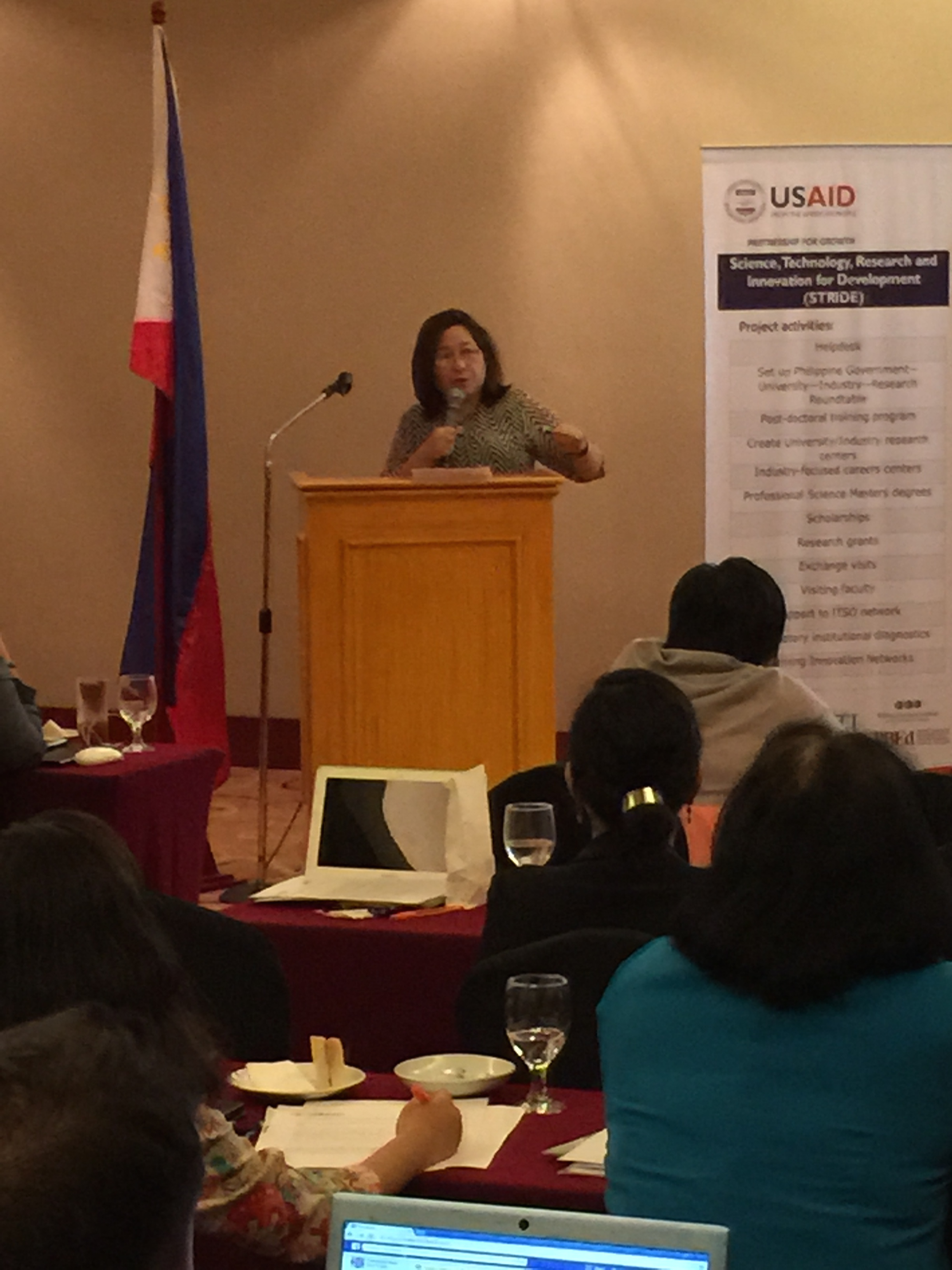
Carolina Sangga, a physics professor from the Technological Institute of the Philippines who published a case after the workshop, told the current group of workshop participants to push through the long writing and editing process. It is worth it in the end, she said.
“When I saw the final copy of my case, I was so excited about it,” she said.
Sangga said she has used the case in her course and said it was a “very, very good activity.”
“I saw how the students had to use their critical thinking mind,” she said.
Mary Gretchen Chaves from the University of the Philippines – Cebu joked that she wasn’t sure if she was there to inspire or scare the workshop attendees. She told them to look at it as a challenge.
She told her fellow professors to write with the students in mind, write about what you know, and show patience, perseverance and passion.
Following the two professors’ remarks, a brief ceremony was held for others from the first workshop. They were presented with a certificate and a copy of their cases.
The three-day workshop is part of the STRIDE project, which aims to foster economic growth and development in the Philippines through support of education, research, and industry partnerships in high-growth economic fields, including science and technology. The five-year project is funded by the United States Agency for International Development (USAID) in partnership with RTI International.
The workshop increases understanding and use of the case teaching method in the Philippines, where few cases about domestic companies and institutions have been written. Using case studies as teaching materials provides students with opportunities to apply what they are learning in the classroom to the real-life challenges and decisions faced by business owners and leaders of organizations.
Through collaboration with GlobaLens, WDI’s publishing division, each completed case will be professionally edited, published, and made available for free to university faculty members worldwide.
The 19 completed case studies from the first workshop, held last year, are available at www.globalens.com/STRIDE.
The second day of the case writing workshop led by WDI for 35 Filipino professors centered on how to properly research and write a case study.
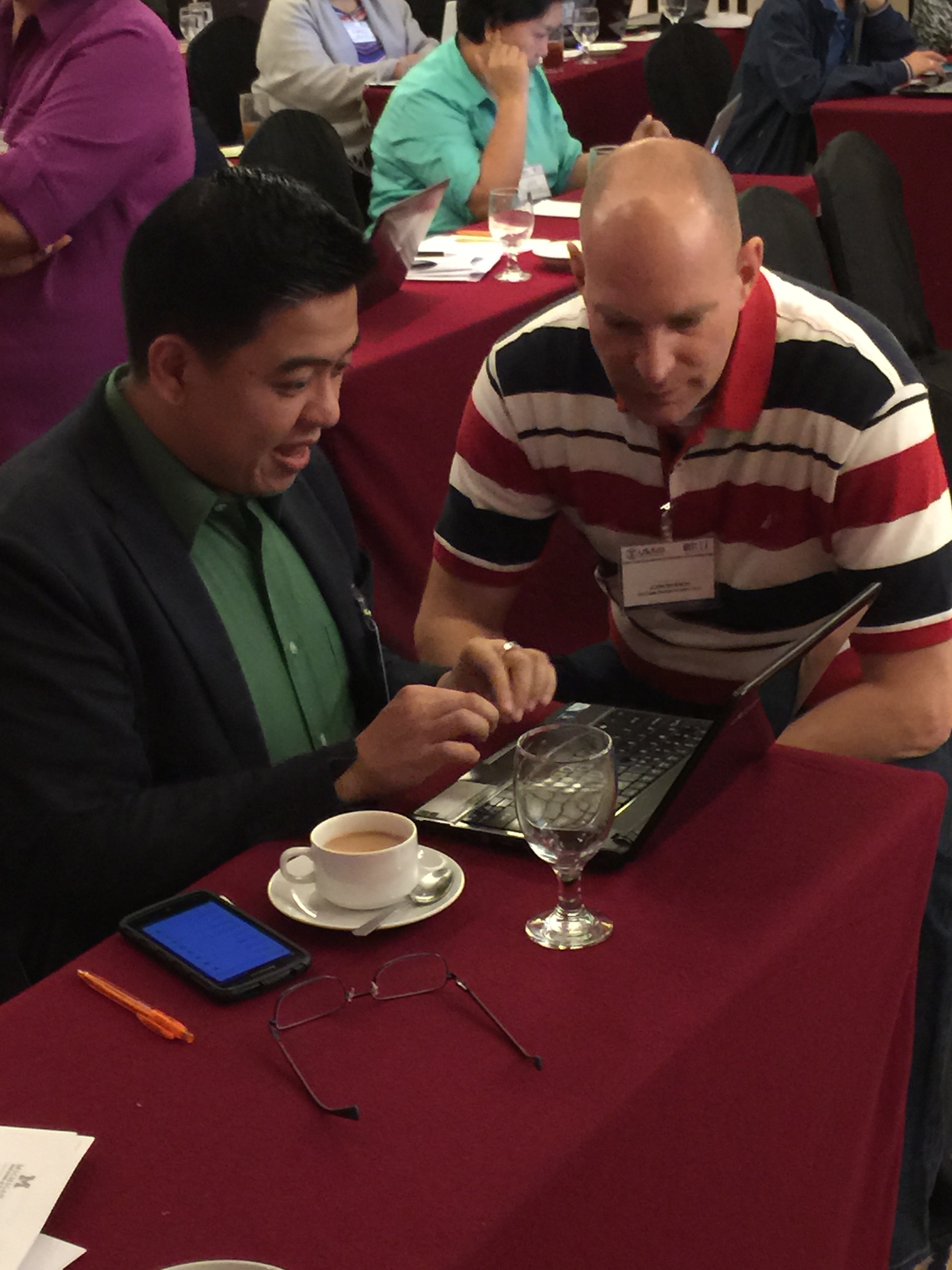
WDI case writing expert John Branch, professor at the University of Michigan’s Ross School of Business, spent the day detailing the components of a case, how a case meets a professor’s learning objectives, and where to gather information.
The participants, from universities around the Philippines, also spent some individual and group time mapping out their case, its content, storyline and characters. Branch, along with senior WDI case writing consultant Andrea Meyer, also spent one-on-one time with each participant to answer questions and help guide their work.
“This is creative writing, but it’s not fictional,” Branch said of case writing. “You need information. You need to research your case.”
The three-day workshop is part of the STRIDE project, which aims to foster economic growth and development in the Philippines through support of education, research, and industry partnerships in high-growth economic fields, including science and technology. The five-year project is funded by the United States Agency for International Development (USAID) in partnership with RTI International.
The workshop increases understanding and use of the case teaching method in the Philippines, where few cases about domestic companies and institutions have been written. Using case studies as teaching materials provides students with opportunities to apply what they are learning in the classroom to the real-life challenges and decisions faced by business owners and leaders of organizations.
Through collaboration with GlobaLens, WDI’s publishing division, each completed case will be professionally edited, published, and made available for free to university faculty members worldwide.
The case studies from the first workshop, held last year, are available at www.globalens.com/STRIDE.
Thirty five faculty members from around the Philippines gathered in Manila April 21 for the start of a three-day case writing workshop that is part of the STRIDE project.
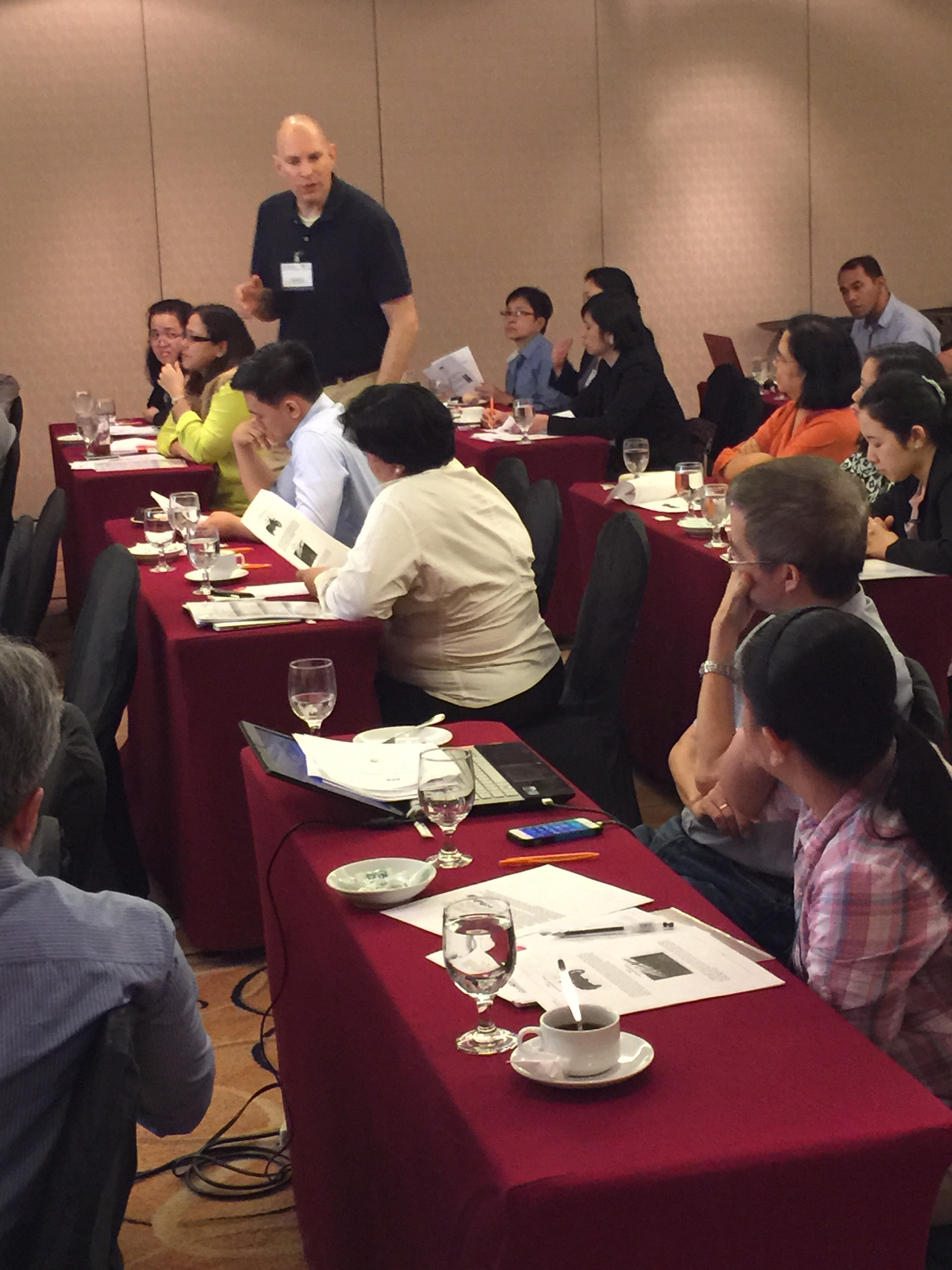
WDI case writing expert John Branch, professor at the University of Michigan’s Ross School of Business, began the workshop by first teaching a case of his own. He wanted to show the professors the advantages of using case studies in the classroom before showing them how to write one.
Unlike lectures, Branch told the participants, using case studies lets students lead their own learning.
“This is part of case teaching – not passively giving information, but forcing students to use their brains,” he said.
Each of the 35 faculty arrived at the workshop with an idea for a case study that examines companies or organizations in the Philippines. Over the three days, Branch and senior DCS consultant Andrea Meyer will help the professors begin writing an effective case study.
The workshop increases understanding and use of the case teaching method in the Philippines, where few cases about domestic companies and institutions have been written. Using case studies as teaching materials provides students with opportunities to apply what they are learning in the classroom to the real-life challenges and decisions faced by business owners and leaders of organizations.
Through collaboration with GlobaLens, WDI’s publishing division, each completed case will be professionally edited, published, and made available for free to university faculty members worldwide.
The case studies from the first workshop are available at www.globalens.com/STRIDE.
The case study workshop is part of the five-year, multi-million dollar STRIDE (Science, Technology, Research and Innovation for Development) project. The initiative, funded by the United States Agency for International Development (USAID) in partnership with RTI International, aims to foster economic growth and development in the Philippines through support of education, research, and industry partnerships in high-growth economic fields, including science and technology.
Development Consulting Services (DCS) Career Services experts Tom Devlin and Farouk Dey were recently deployed to Manila, Philippines to assist the Technological Institute of the Philippines (TIP) in career center development and industry outreach.
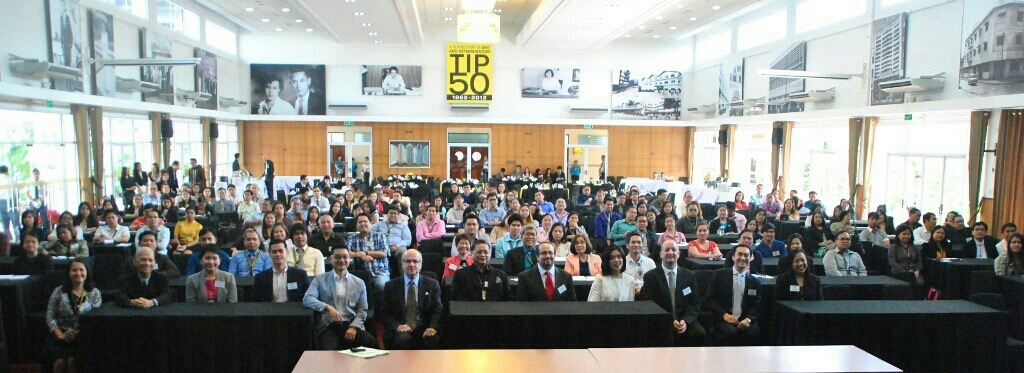
Dey and Devlin evaluated the current status of student career services and partnerships with business and industry at TIP, and will form a five-year plan to develop the university’s career center into a model institution that can be emulated at other regional universities.
Stakeholders in the region were highly receptive to the idea of developing a model career center at the university, and many participated directly in the development process. Approximately 30 students, 15 recent alumni, and dozens of university administrators, faculty, guidance counselors, and other staff met with Dey and Devlin to discuss their relationships with the university and career services. The groups worked to determine how the career center at TIP could best be developed to bridge the gaps between the needs of the university, students, and employers.
Following a week of on-site work, training, evaluations, and planning, TIP invited approximately 200 guests to an open seminar to discuss the role of university career services, different ways employers can get involved, and best practices for universities, educators, and employers. Attendees included administrators, faculty, and staff from regional universities, as well as many executives and recruiters from Filipino businesses.
Ellen De Guzman, director of human resources at Stateland, Inc., a real estate firm, said she was extremely impressed with what she learned at the seminar, and found the experts’ advice very relevant.
“The program was excellent,” De Guzman said. “We are so blessed in the Philippines that USAID is extending its assistance to our academe and employers, to help fill in the so-called ‘gaps.’ I personally experience the effect of this issue as my company, like many others, sees a rise in unemployment in spite of many job opportunities.”
DCS’ work is a part of the larger five-year, Science, Technology, Research and Innovation for Development (STRIDE) project, which aims to increase the capacity of higher education in the Philippines, with a focus on the high-growth sectors of science, technology, engineering, manufacturing, research, and other related fields. The $30 million project is funded by the United States Agency for International Development (USAID), in partnership with RTI International (RTI).
Following a successful Development Consulting Services (DCS) workshop in the Philippines and editorial assistance from GlobaLens case writers, the William Davidson Institute (WDI) is proud to announce the publication of the Philippines Case Collection on the GlobaLens website.
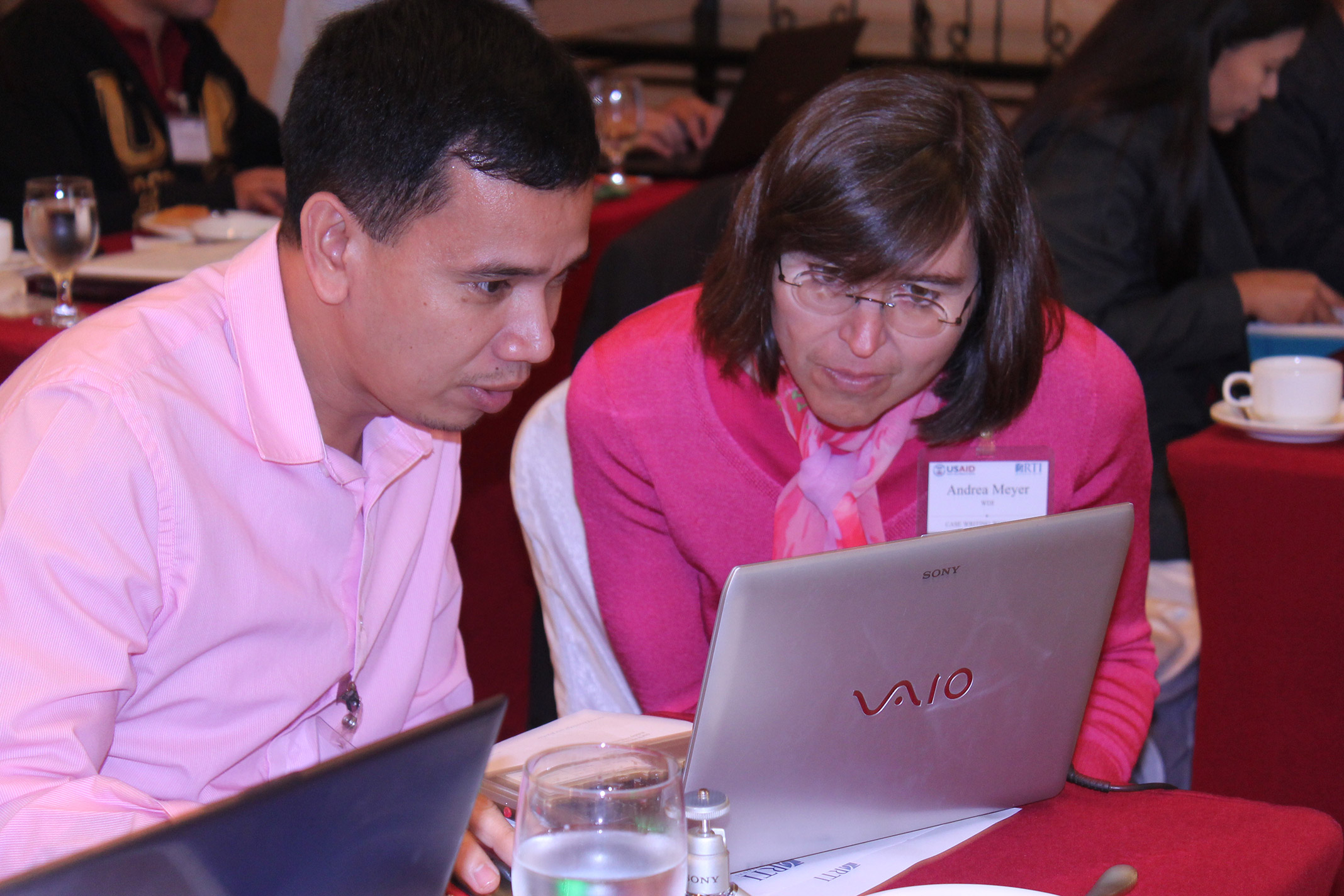
The cases are some of the first to be written by Filipino professors about domestic companies, and discuss the challenges and successes of companies and organizations in a variety of fields – including health care, software, ecotourism, microfinance, marketing, and many others. The cases will help prepare students for careers in these high-growth sectors by exposing them to real-life challenges and dilemmas of Filipino companies, and encouraging them to use creative problem-solving skills.
The collection is the result of WDI’s role in the Science, Technology, Research and Innovation for Development (STRIDE) initiative. The five-year, multi-million dollar effort is funded by funded by the United States Agency for International Development (USAID), in partnership with RTI International.
The STRIDE project aims to foster economic growth and development in the Philippines through support of education, research, and industry partnerships in high-growth economic fields, including science and technology. As part of their work under STRIDE, DCS deployed case writing experts John Branch and Andrea Meyer to Manila, Philippines, to teach a workshop on business case writing and how to use cases as an instructional tool in university courses.
Following the workshop, each of the professors had the opportunity to write their own case while receiving technical assistance and feedback from the GlobaLens case writers, WDI’s experts, and the DCS staff. Their efforts resulted in 19 published cases and mini-cases, with teaching notes. All are now available to professors and students around the world, free of charge, at GlobaLens.com/STRIDE.
The case authors expressed their excitement at the opportunity to work with local companies and organizations, and to use this new learning tool in courses at their universities and other institutions in the region. The professors plan to use their new skills to write additional cases about local organizations.
“I look forward to sharing my case with colleagues, and will encourage others among our faculty to attend WDI’s future STRIDE workshops,” said case author Dinah Pura T. Depositario of the University of the Philippines, Los Baños. “I plan to write additional cases in the future.”
DCS will conduct a second STRIDE Case Writing Workshop in April 2015, when a new cohort of professors from the nation’s top universities will have an opportunity to join their colleagues in writing and publishing cases about organizations in the Philippines, and bringing knowledge from business and industry into their classrooms.
“It’s one thing to teach students how to perform a specific technique, such as financial analysis. It’s another to teach them why one should be done, how it should be interpreted—or even when the results must be ignored,” said Khalid Al-Naif, director of WDI’s Development Consulting Services. “Our Philippines Case Collection will show Filipino university students, as future leaders and decision makers, that managers must exercise judgment, not mere skills.”
Four Development Consulting Services’ (DCS’) career center experts are in the Philippines to increase career services expertise at select Philippine universities as part of WDI’s Science, Technology, Research and Innovation for Development (STRIDE) project.

Two DCS experts – T. Andrew “Andy” Ceperley and Christian Garcia – will be working with the University of Iloilo. The other two, Christine Cruzvergara and Joseph “Joe” Testani, will work with the University of Santo Tomas in Manila.
The team of consultants will assess the current status of career services at each institution. They will develop a plan to create integrated, effective career services there, and then support the stakeholders with technical assistance to build an action plan to grow and build capacity during the five-year span of the STRIDE project.
The team will also hold two open workshops to emphasize the ability of career centers to foster strong relationships with business leaders and recruiters. They will introduce the U.S. model for career centers to a group that will include both career services professionals and representatives from various industries in the Philippines, and discuss how both universities and hiring employers can benefit from effective career services programs.
The STRIDE project, in partnership with RTI International, aims to strengthen linkages between industry and academia in high-growth economic sectors, such as manufacturing and information technology.
The program, funded by the U.S. Agency for International Development, is designed to improve research experience and output, as well as boost the qualifications of faculty and staff in select programs at universities in the Philippines, while strengthening or establishing partnerships between U.S. and Philippine universities. STRIDE also helps students gain the skills and knowledge they need to be successful in their careers.